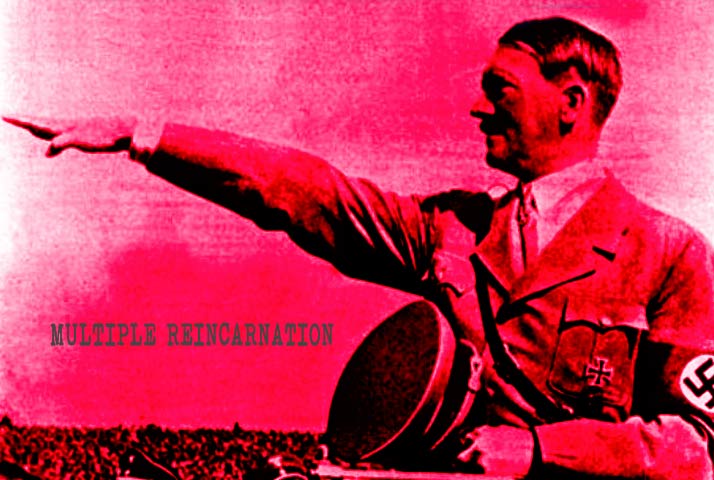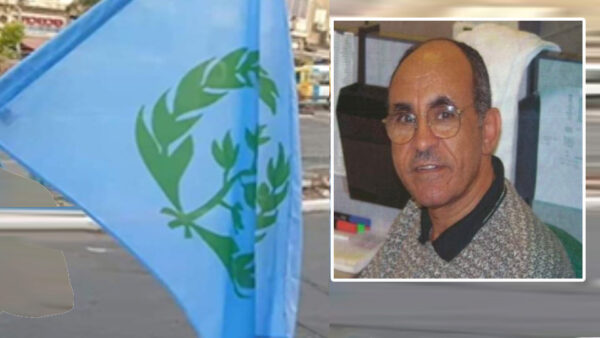Stand up Before You Become A Victim Of The Beast

“Each one hopes that if he feeds the crocodile enough, the crocodile will eat him (her) last. All of them hope that the storm will pass before their turn comes to be devoured.” Winston Churchill
The above quotation is from one of the finest political wits, Winston Churchill, which was said to the neutral states on January 20, 1940, during World War Two. His words became one of the living reminders for us not to be appeasers who feeds a beast, while we hope to be the last of his victim. In politics, appeasement is “a policy of making one sided concession at the expense of the third party with nothing offered in return, but in a vain attempt to satisfy the aspiration of an authoritarian regime.” The Eritrean contemporary politics has plenty of examples of people who fed the beast, hoping the despotic beast will pass away before the beast greedily devours them.
In political science, the beast is “a metaphor for rogue and most powerful leaders, who are set on, only to satisfying their appetite for power and wealth, at the expense of every citizen.” Most Eritreans are feeding the beast and his party, forgetting that they will be the victims – either directly, risking their own lives, or indirectly risking the lives of their own families and extended relatives. A beast does not discriminate, it is only a matter of time, and turns. We have seen the Eritrean beast consuming Eritrean lives – individuals after individuals, and groups after groups, in the last 45 years, since 1970.
Whether we are in the opposition mourning the predicament of our people, or the PFDJites who are gleefully isolating our nation and suffocating our people, the era of “self-appointed leaders and parties” who play the role of charting the way forward for the nations of the world is slowly diminishing. Something wider, more engaging and infinitely more satisfying to individual participants, is arising [Micah Sifry,2004]. And as such, Eritrean politics will not escape the influence of such overwhelming developing realities.
Fighting A Totalitarian Regime: A matter of Priority
The Chinese human rights activist, Chen Guangcheng, in a lecture at Princeton University, sponsored by the school’s Witherspoon Institute, has to say the following: “To eliminate the bad in the world, the removal of a totalitarian governments need to be the priority.” Something in our fight, that the opposition camp failed to make our priority. Totalitarian governments are governments in which the states involve themselves in all facets of society, including the daily life of their citizens. Totalitarian governments seek to control not only all economic and political matters, but also the attitudes, values, and beliefs of their population. Notwithstanding the many differences among totalitarian regimes and states, indeed, they have many common characteristics. Three totalitarians out of the many that explicitly define their commonalities are worth mentioning (a) the existence of an ideology that address all aspect of life and the means of how to attain the final goal as set forth by them (b) a single party through which the people are mobilized to muster the energy and the support of the masses (c) the party leadership steadfastly maintains monopolistic control over the government system, and that includes, the Police, Military, Communications, economic, and educational system. That is why Orwell, in his work in Burma, exposed the truth that “a totalitarian is a basic evil” before he went to Spain to fight in the civil war.
From a historical prospect, there is no single cause for the growth of totalitarian tendencies, despite the theoretical roots in the collectivist political theory of Plato, Rousseau, and Marx. The emergence of totalitarian form of governments are more of “results of specific historical forces”, than a single cause that depict the phenomenon itself.
The Birth of a Despot: A Precursor to a Totalitarianism
In his column, “Branna” of December 23, 2003 Aklilu Zere wrote that he had witnessed the birth of the Eritrean despot in “Fishei Maria”, in September 29, 1976. Metaphorically, Aklilu, in a Freytag’s analysis, “the exposition,” introduced the important background about the graphic circular set of the meeting of the thirty important individuals of the organization, that depict the birth of the despot. He further elaborated in a similar Freytag’s pyramid, that the “Rising action” had continued to increase the power of “NISU” by the elimination of the elite of the organization whom he thought could threaten his power. In a dramatic rising action, symbolizing the “theory of dramatic structure,” the power of the despot reached its climax by building a system and institutions that secure his totalitarianism. The Eritrean people, despite all the sacrifice they made for the birth of their nation, continued to endure the evils of the totalitarian regime of Asmara.
Margret Atwood’s novel “The Handmaid’s Tale” also reveals the peculiar evils of totalitarianism in which “totalitarianism destroys the ability of subjects to trust each other, and consequently prevents the subjects from forming and sustaining deep relationships with others.” Similarly, she revealed, that totalitarianism also gives rise to another evil as it destroys “the capacity of agents to engage in cooperative action as equals.”
The Handmaid tale took place in Gilead, a fictional totalitarian regime within the North East of the United States. Offred was a character that was coerced into handmaid after Gilead was formed through a violent coup. The role of the Handmaids as depicted in the novel, in the Gileadean society, was to copulate with married commanders so that children can be produced, to reverse the decreasing birth rate, due to environmental pollution. Offred has no friendships and was completely isolated with no semblance of normal relationships. In the totalitarian of Gilead, revealing intimate relationship poses a danger to the Handmaids. So Offred can not feel safe if she reveals details of herself with others, because anyone could be a member of the secret police or an informant that put her life in danger.
Does this fictional characters, in the Gleadean society, as depicted in the novel, reflect any semblance in the lives of the Eritrean people? Like the Gileadean society, the Eritrean people are under the heavy surveillance of police and undercover security, not to even talk about their values, attitudes, beliefs, and relationships with each other, to bring change in their lives. The PFDJites security net is extended even to the smallest unit of family – the nuclear family, that consist two parents and their children. They destroyed the fabric of “relationships” across societies and families, who can’t communicate about it, because of fear of retribution. In short, the system destroyed the ability of the people to trust each other as a group or as families.
Since “Trust” is essential for forming relationships as individuals or as a group, fear destroyed trusts, in the “Handmaid’s Tale” narration perceptively, and reveals the often-overlooked evils of the totalitarian regimes, such as ours that has been running for twenty-six years. The Eritrean regime uses fear as a tool to isolate, paralyze, and disconnect our people from each other, to disallow them from coming together to pursue their common purpose as equals, to build their nation.
Fighting the Despot: Joining the Downs and Outs
After leaving Burma in 1927, Orwell returned to England, and for the next few years he joined and “voluntarily lived in poverty among the downs and outs.” He felt, that he had been part of the oppressive regime that left him with bad conscience. When he felt guilty, his conscience propelled him to expiate. Finally, he declared “to submerge himself to get right down among the oppressed to be one of them and on their side against their tyrants.”
The Eritrean elite and the intellectuals are being summoned by time and circumstances, to understand the predicament of our people and join hands with the downs and outs, to fight the tyrant that has killed the hopes and dreams of our people. There is nothing worth fighting for than to free the Eritrean people from the grips of tyranny, and emancipate them from the concrete realities they are going through in a perpetual siege, from the institutions of tyranny. The commitment of our elite and intellectuals to mitigate the plight of our people are nowhere in the picture of the current struggle.
Robespierre was right when he said “the secret of freedom lies in educating people, whereas the secret of tyranny is in keeping them ignorant.” Our elite, instead educating our people, they are in denial as to the common plight of our people, especially to our young, looking from their lofty heights down to the little people. Those who are cognizant of the plight of our people have no answers to our problems and chose to live with the consequences, until the despot passes away due to natural causes. Indeed, our situation reminds me of the situation of the French people, in 1789, who were desperate for leadership from their intellectual elite to solve the critical issues for a stable society. Aren’t we in the same situation?
Reading Mill through the usual mimetic sense of the battle of ideas, one has to expect the Eritrean intellectual elite to come up with various solution-based ideas to resolve the problems we are confronting. Mill also suggested that, “politics can only be representative, a truly public discourse, through a splitting in the significance of the subject of representation” to contain and demonstrate enlightened relativism. I hereby call on the Eritrean intellectual elite to revive their common sense and their intellect, to come to the forefront of the current struggle and commit themselves for the common good of the Eritrean people.
References
– Aklilu Zere “The birth of the despot,” Branna, awate.com, December 29, 2003.
– George Orwell’s book, “Dawn and out in Paris and London”, 1933.
– Gustav Freytag, a playwright and novelist “the theory of dramatic structure” defined as in the “Freytag’s Pyramid.”
– Margret Atwood, “The Handmaid’s Tale,” a novel, published in 1985.
– Chen Guangcheng’s speech at Princeton University, October 2, 2013.
– Winston Churchill’s speech for the Neutral States, January 20, 1940.




Awate Forum